Shock.
That’s not a reaction normally elicited by a golf tournament. Yet that’s what resulted from Sunday’s final round of the Masters. Jordan Spieth had led from Thursday on, and finished the front side of his round with four straight birdies, giving him a five-shot lead. Texts flew in, friends begging someone to put pressure on Spieth to liven things up. Another said they should just change the name of the course to Spieth National. Things seemed preordained.
It’s important to remember just how difficult a course Augusta National is. It’s the ultimate in risk/reward golf; excellent shots yield results, while misses are punished harshly. But given all that Spieth had shown, both this year and the previous two years, it was nigh-impossible to imagine an occurrence that would lead to anything other than Spieth receiving a second straight green jacket.
Two minutes in real-time (or as with all the real-time measurements to follow, CBS’s presented version of real-time, as measured on DVR) from when Spieth sank a long birdie on the 9th, Danny Willett got up and down on 12 to save a par after a tee shot that could easily have bounced down into the water. After he made the downhill four-foot slider, Nick Faldo said “He’s got to get to at least five under, doesn’t he, to maybe scare Jordan.” I doubt many paid much attention at the time, though Willett had been playing so well that even know-nothing amateur analysts on Twitter had taken notice:
Willett is playing some fantastic golf.
— Jay Rigdon (@jayrigdon5) April 10, 2016
Five shots separated the two: Spieth at -7, Willett at -2. Then things got interesting. Spieth was shaky off the tee on 10, missing down the right and giving himself a much tougher (and longer) angle on his approach. Willett, meanwhile, was reaching the 13th green in two. Spieth left his iron short, and couldn’t convert a sand save. Willett lagged his eagle putt and cleaned up for birdie. Spieth sat at -6, Willett at -3.
Then Jordan, normally an incredibly accurate driver of the ball (his main strength off the tee, as he is not as long as players like Day, McIlroy, or Johnson), blocked his tee shot on 11 into the Georgia pines, forcing a punch out. Willett played the 14th to perfection, sticking his 148-yard approach to three feet. Spieth almost made his recovery approach, spinning the ball back inches away, but then it kept rolling, leaving him with more than he wanted for the par save. Willett made his birdie in the center of the hole. Spieth lipped out his par putt.
Willett now trailed by just one shot as he played the 15th, while Spieth made his way to the 12th tee.
***

Before we go forward, it’s important to talk about Danny Willett. The 28-year-old Englishman is the type of player who was most likely to be a surprise contender; going into the week, he ranked 12th in the world, but as a European Tour member who plays sparingly in the US (appearing in just four non-major, non-World Golf Championship events in the United States over the past two years), golf fans here were perhaps surprised to see his name hanging around the leaderboard. (Full disclosure: he ranked 20th in The Comeback’s ranking of the entire field, wherein this writer stated “Willett has played well all over the world, and there’s no reason he couldn’t begin contending in majors as early as this weekend.” Obviously this was still unexpected.)
Willett has won already this season on the European Tour, capturing the Omega Dubai Desert Classic in February. He has built his ranking playing well in tournaments that American fans only see if they subscribe to the Golf Channel and suffer from insomnia. But his game is a consistent one; he hasn’t missed a cut since last July. He finished tied for 6th at last year’s British Open, and he made the cut at last year’s Masters, his first appearance. He currently sits in seventh on the European Tour in stroke average, with some excellent short game statistics to boot. The point of this is that Willett was not the typical unknown major contender. His presence pushing Spieth was not a fluke. This was not Trevor Immelman or Rich Beem or Todd Hamilton, players we watched win majors without knowing (though perhaps suspecting) that we were witnessing the peak of their career, with no more to follow. Danny Willett can play.
There was also a very realistic scenario that would have led to him missing the Masters. His wife was due to give birth this weekend with their first child, but the baby came early, arriving March 30th. Had his son not been born, he was going to skip the trip to Augusta. As the broadcast pointed out, this led to his caddy wearing bib #89, meaning Willett was the last player of the 89 in the field to register for the event. Jordan Spieth’s caddy wore #1, as he was on the bag of the defending champion. That the tournament came down to the men who bookended the field was, of course, nothing more than poetic chance. But it certainly made for good poetry.
***

The secret to this tournament is that it builds on itself. The only major to be played at the same course each year, it allows players, patrons, and viewers the chance to frame unfolding events against past images. If a player birdies the 8th, eagles the 13th, or aces the 16th (as three players did yesterday), they’re doing so on the same holes, with the same shots, as countless others have before. The mythology this provides the event is earned, and though it can lend comfort to those who have found prior success (Spieth himself has been, for the most part, absolutely incredible all three years he’s teed it up at Augusta) it can also force players to face down prior mistakes, replicating the scenario with frightening and perhaps flashback-inducing detail.
The 12th hole at Augusta appears far from fearsome. The 152-yard par-3 over water, to the traditional Sunday sucker pin placement at the front-right of the green, is nevertheless daunting. As Spieth stood on the tee, there were other factors as well: major championship pressure, deceivingly swirling winds, two consecutive blocked tee shots, and a personal history at the hole in a strikingly similar situation.
Two years prior, playing in his first Masters, Spieth played Sunday from the final group, paired with Bubba Watson. Spieth had bogeyed 8 and 9, falling behind, and needed a solid recovery through Amen Corner to keep things close. Instead, his tee shot came up short, bouncing down the tightly-mown bank and into the water.
All of those factors were in play for Jordan as he stood on the tee at 12. The pin placement, as always, was the same. He debated with his caddy, Michael Greller, as to the club selection. He wondered if it would perhaps go long. Greller assured him it was a stock shot, the entire conversation picked up by the broadcast. Spieth confirmed the shot verbally, seemingly more to himself than Greller, and stepped up to hit.
The ball landed about ten yards right of the flag, and more importantly, about ten yards short, bouncing down the tightly-mown bank and into the water. CBS cued up the 2014 shot in an instant, as though the production team was anticipating the need.
As Spieth and his caddy walked to their chosen drop location, Danny Willett laid up on the par-5 15th, having driven too far left to go for the green in two. Spieth, obviously a talented wedge player and putter, still had a very good chance to save a bogey, and with multiple birdie opportunities ahead, even a double bogey would not put him out of contention. What happened next was what inspired the first word of this article: shocking.
He chunked it. Laid the sod over it. Hit it fat. Something every person who has ever played golf has done, though with immeasurably greater frequency than Jordan Spieth. His ball barely made it to the near-side of the water, much less across and onto the green. He took another drop. He was now hitting his fifth shot. Willett played a similar wedge on 15, and was much more successful, leaving himself about fifteen feet for birdie. Spieth’s third attempt to hit the green sailed into the back bunker; he then splashed out to three feet, truly an incredible bunker shot, given what had just transpired. Willett missed the birdie, but tapped in for par. Spieth made his putt for a quadruple-bogey.
Here are all of Spieth’s shots on 12, if you have the stomach for it:
https://twitter.com/CauldronICYMI/status/719285587837108225?ref_src=twsrc%5Etfw
Time elapsed from Spieth making his fourth birdie in a row on the 9th to Spieth finishing off his quad on the 12th: 45 minutes.
He had lost six shots to par, and now sat at -1, in a tie for fourth place. Willett had gained two, and led outright at -4.
These events had, in theory, opened things up for the field at large. Lee Westwood and Dustin Johnson were second and third, one and two shots back, respectively. However, they would quickly do what Lee Westwood and Dustin Johnson normally do on major championship Sundays: move backwards.

Westwood, playing with his countryman Willett, had just chipped in for a miraculous eagle on 15, and some perhaps were envisioning a scenario in which the veteran finally brought home an elusive major.
He promptly three-putted the 16th, missing a three-foot par putt.
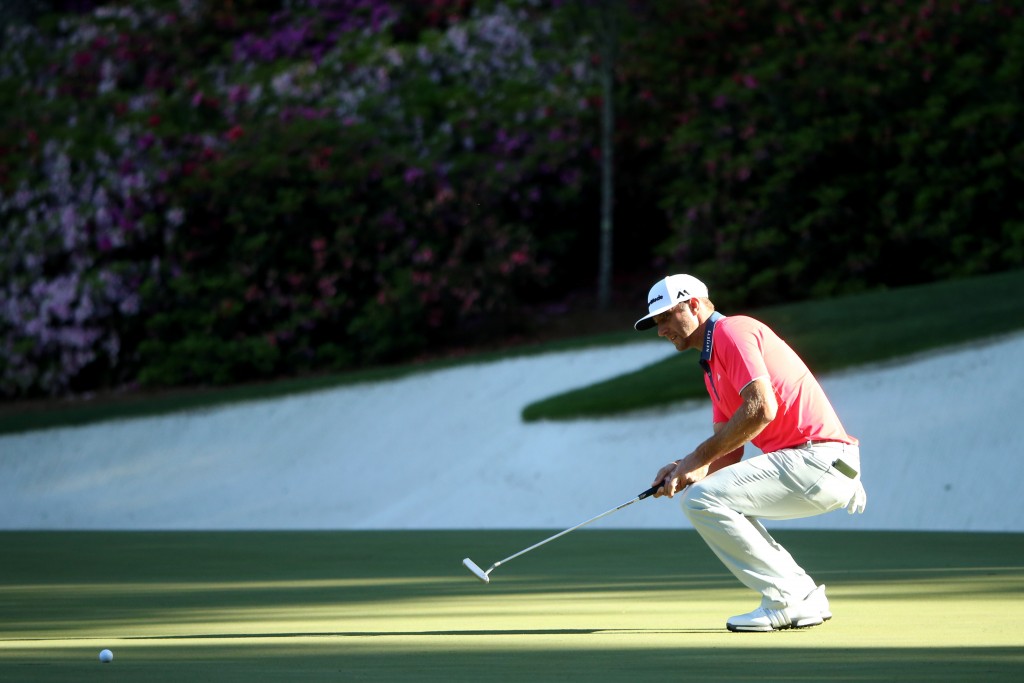
Dustin Johnson used his otherworldly length and impossibly high ball flight to reach the 15th green in two, despite having driven behind the same trees that had forced Willett to lay up. That shot was absolutely incredible, and left him with about twenty feet for eagle. That putt never had a chance, however. He did tap in for birdie, leaving himself two behind Willett.
But he was unable to convert a birdie putt on 16, then made his second double-bogey of the round on 17, ending his chances.
Danny Willett, meanwhile, birdied the 16th after a tee shot to four feet. That placed him at -5, with only one realistic challenger remaining: a reeling Jordan Spieth.
Well, a momentarily reeling Jordan Spieth, as he birdied the 13th after a lovely chip. He then nearly birdied the 14th, his long-range effort rolling just wide. Willett scrambled for par on 17, executing a masterful chip and catching the side door on his short putt. He teed off on 18, finding the fairway. CBS came back from the next commercial break with footage of Greg Norman’s legendary 1996 collapse. Spieth misfired down the left at 15, finding himself in the same spot as Willett and Johnson, and unlike Johnson, he had to lay up. Willett found the center of the 18th green, and after a tentative lag, finished with a par to complete what would have been a great round of golf on any stage. On this stage, his bogey-free 67 was simply amazing.
Time elapsed from Spieth’s quadruple-bogey on 12 to Willett walking off the 18th green with a three-shot lead: 42 minutes.
Spieth wasn’t finished. Having knocked his wedge stiff on the 15th, he drained the six-foot birdie putt, leaving himself two shots back with three holes to play. He hit it close again on 16, having apparently purged whatever swing demons had briefly descended upon him, and the stage was set. He addressed the ball, aiming well outside the hole, as is required given the ridge-side Sunday pin location on 16. And he missed, putting through the break. This didn’t officially rule him out, but he now stood on the 17th tee with no margin for error.
Time elapsed since the tectonic shift of Spieth’s quadruple-bogey 7 on the 12th: 58 minutes.
Spieth hit the 17th fairway, but then, as had been his miss all day, blocked an iron short and right into the bunker. He likely needed to hole it to have a chance to force a playoff, but his splash-out caught the downslope and kicked right, and he could only brush the right side of the cup on the par putt. That was it. Danny Willett had won.
But the event wasn’t over. Spieth still had to play 18. As he walked up to the green, he seemed deflated. Understandably so. He tapped in for par, ending the Masters in a tie for second place.
Time elapsed since his birdie on 9: 2 hours, 7 minutes.
If you want to ask someone how long 2 hours and 7 minutes can feel, ask Jordan Spieth, because he knows better than anyone.
As Spieth walked off the 18th, he asked in the politest of ways for the television cameras to not be directed in his face. He went through the traditional post-round interview, and held up reasonably well. But even that wasn’t enough, as in a normally benign tradition, the Masters requires the defending champion to adorn the new champion in their freshly-won green jacket.
This would only ever be an awkward scenario in situations just like this one, and so it was, with Spieth seeming dazed; he almost tripped over a chair in Butler Cabin as he stood up to present it, and then remained in center frame as Jim Nantz congratulated Willett. This is the expression of someone who wants nothing more than to disappear, as quickly and completely as possible.
***
It’s important to remember that Danny Willett did not back into the championship. His unblemished 67 tied for the low round on Sunday. No one played better golf on the day. He avoided big numbers all week, making 13 birdies against 8 bogeys, with nothing larger on the card. For reference, Spieth made 22 birdies, but 10 bogeys, 3 doubles, and the unforgettable quad. Had Willett not played so splendidly, Spieth’s travails may have resulted in merely a playoff, or even a win, had he not been pressured into a bogey at 17. Willett moved up to 9th in the world with the victory, and given his age and literal worldwide success, he seems destined to contend in majors going forward. (And he’s also likely to be a dangerous Ryder Cup foe for the American side as well.) Willett just had his first child, and now he’s won a major, deservedly so. It’s hard to imagine a lovelier stretch of life, at least for a professional golfer.
It’s not the end for Spieth, to be sure. He’s only 22, and already has two major championships and four top-5 finishes in majors. Augusta National seems tailored to him, and had he not compounded his mistake on 12, he very easily could have held on to win. Golfers are mentally tough; Rory McIlroy collapsed similarly at Augusta in 2011, and went on to win the US Open in record fashion. Phil Mickelson missed a golden chance to win the US Open in 2013, then surprised everyone (including himself) by capturing the British. Spieth is equally resilient, if not moreso, and what happened today does not dictate any future success or failure. If anything, the week proves that he should be a force at the Masters for a long time to come.
But this tournament builds on itself. Next year, or the year after, or five years on, Spieth will be standing on the 12th tee, on Sunday, staring down the exact same tucked pin on the hole that has effectively taken two green jackets away from him already. Will he be able to fully block that out, or will it remain just to the side of his thoughts, lingering enough to cause him to doubt himself to the point of another mistake?
Could you block that out?
Could anyone?


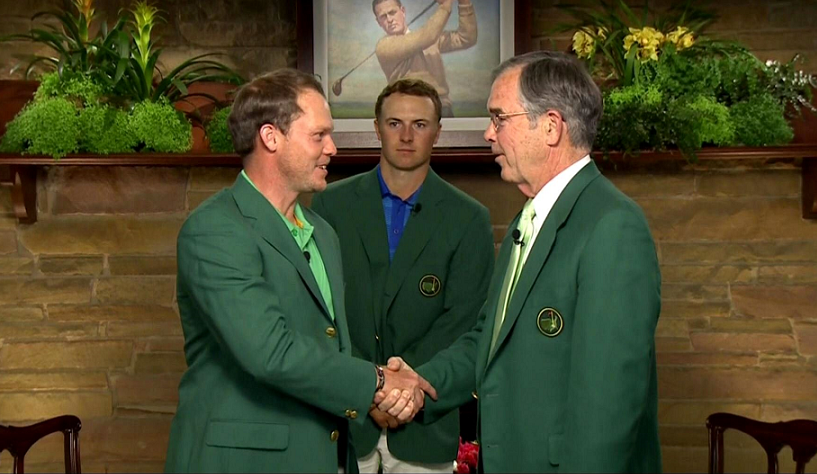
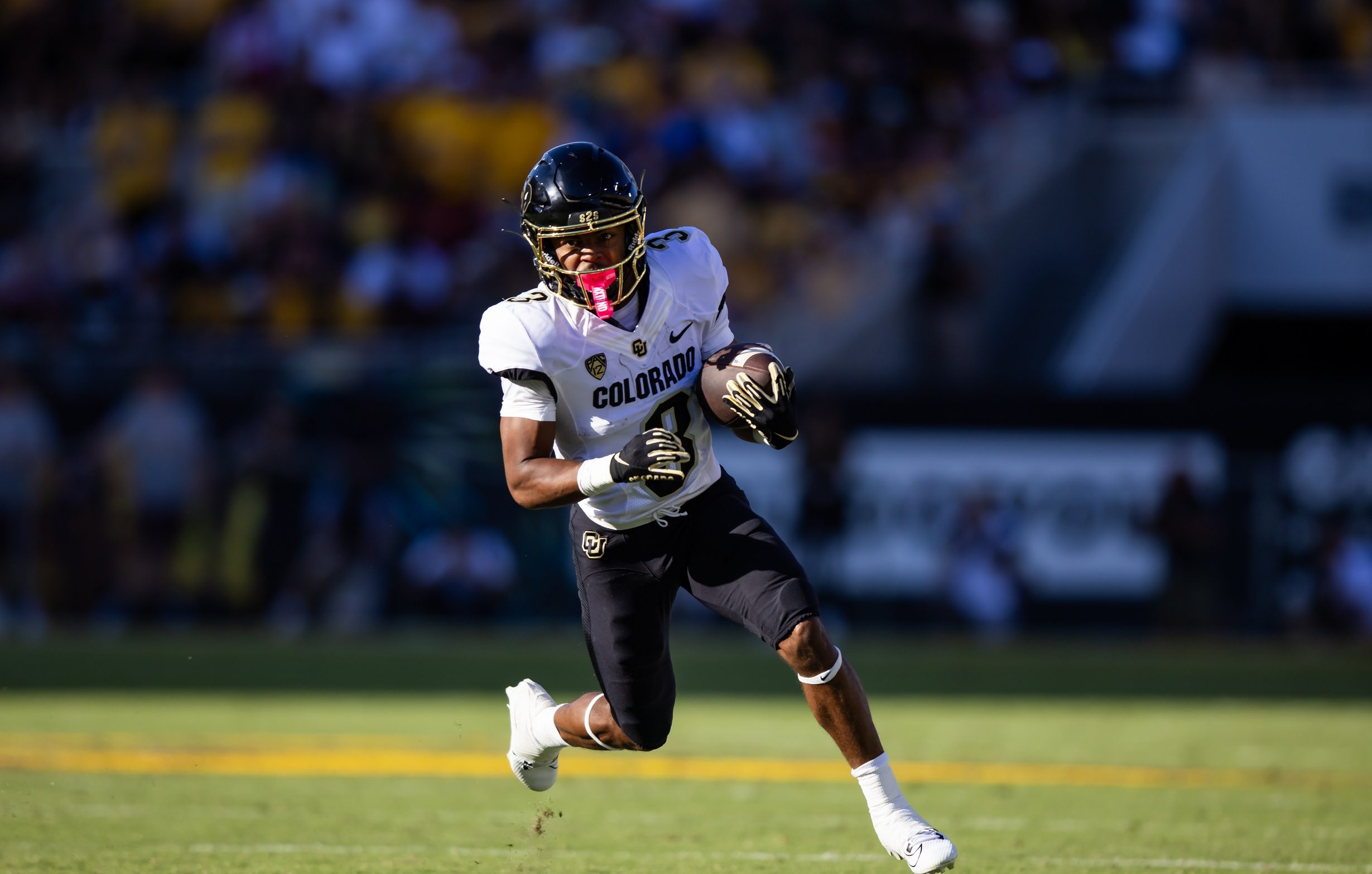
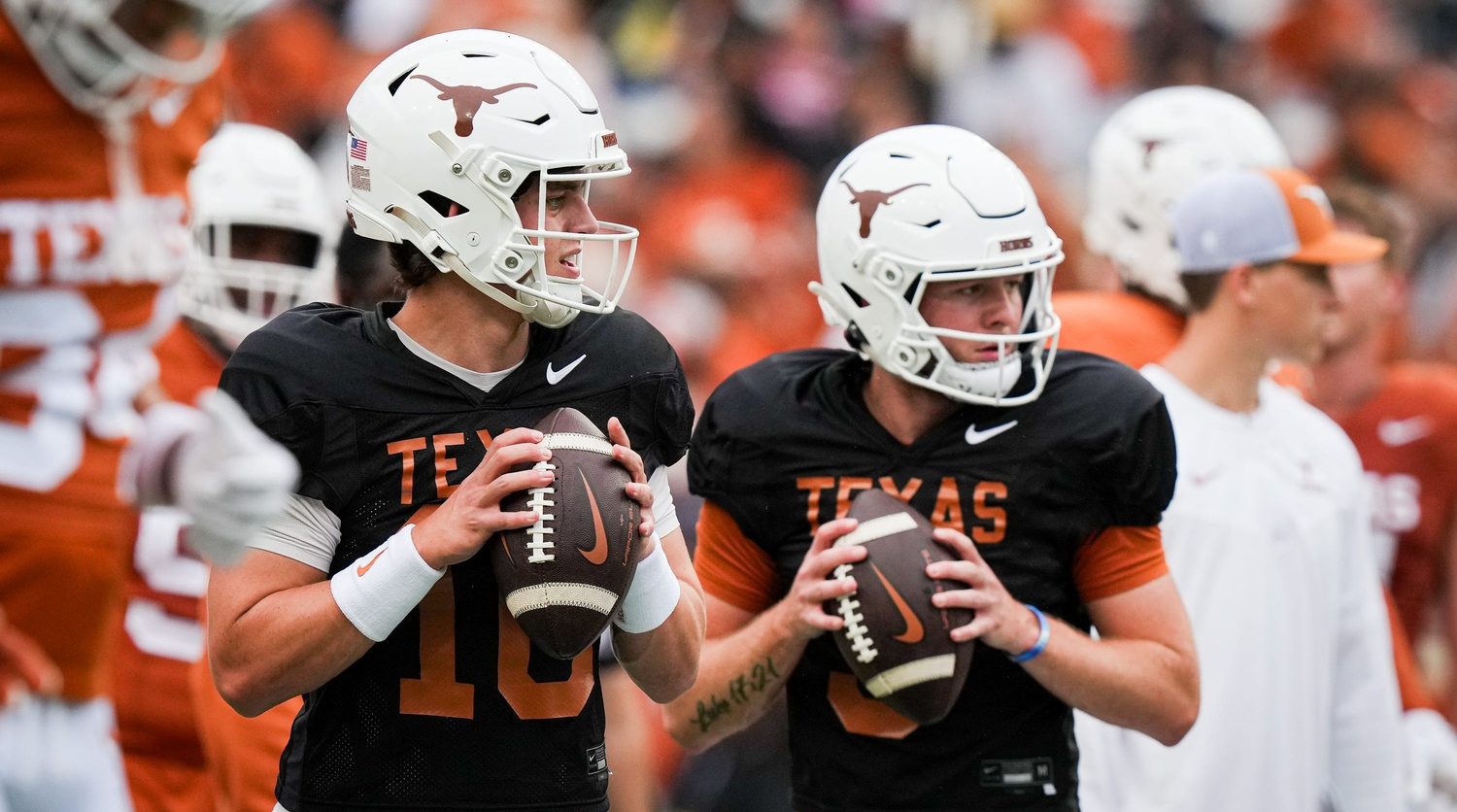
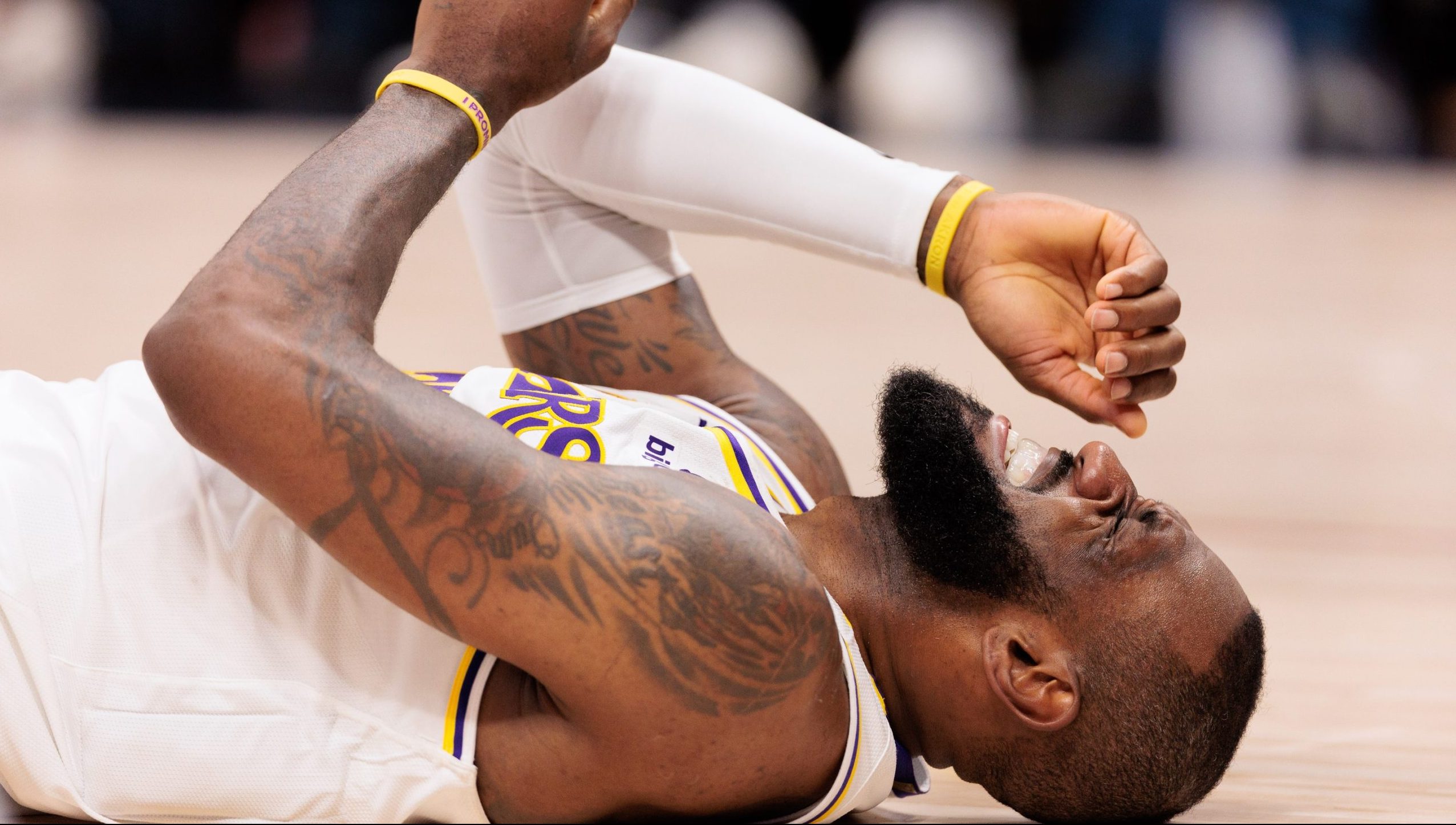

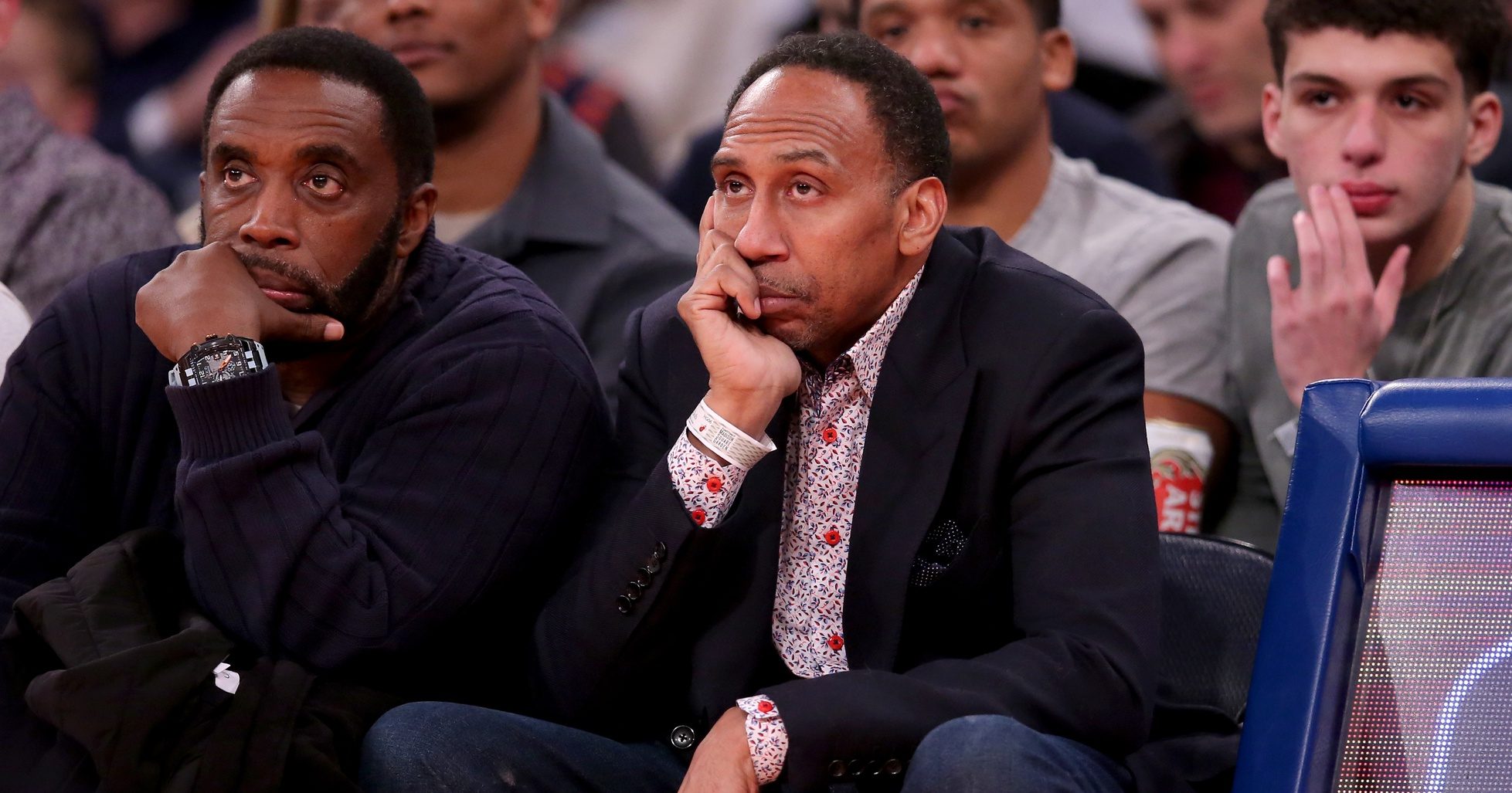
Comments are closed.